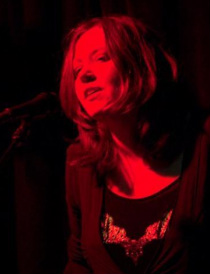Since my earliest memories, I have been creating music. I began to notate my first melodies when I was three years old. As a teen, I spent two summers studying composition with Robert Sirota at Boston University Tanglewood Institute. I then studied with Joe Maneri at New England Conservatory, where I received my Bachelor of Music degree in composition with high academic honors. I have worn many musical hats since then: as a church music director, organist, piano accompanist for choirs and musicals, rock, folk and blues singer and pianist, studio recording artist, songwriter, composer, arranger, and piano and composition teacher. In recent years, I have been the Assistant Music Director and composer for the North Cambridge Family Opera, a young children's educator at Beyond the Fourth Wall Studios in Cambridge, and director of a Cambridge Department of Human Services Arts in the Park program. I currently teach K-8 General Music at St. Peter School in Cambridge, as well as World Music Performance at Northeastern University. I am a graduate student at The Boston Conservatory, where I am pursuing my Masters in Music Education.
I believe that music, ubiquitous to every society, is each human's birthright. It has been part of our collective consciousness since prehistory, and perhaps even predates our species. (Darwin hypothesized that language evolved from music.) Our ancestors were building flutes during the Ice Age, at a time in which our species struggled to survive. What makes music so valuable to humankind that precious resources, time and energy were spent in its creation? My hunch is that music is a tool which connects us to life us in many ways. We use music as a tool to connect physically, spiritually, historically and culturally. On a micro level, the entire brain lights up during music activity: cognitively, our very neurons are connected in the music process.
|
I have been teaching music to both children and adults since 1989. I am a music educator because I see humanity at its best as I assist others in their development in this form of connection. The simplest note, when played with depth and sincerity, is valid and worthy to be heard. I see all my students as born musicians, and my job is to be the midwife who helps them to express what is already innate. |

